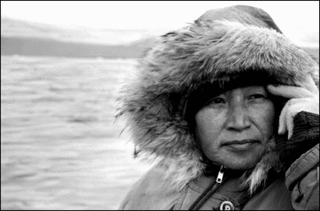Relationships
What to Do When Life Isn't Fair
Sometimes life isn't fair. But you still should be.
Posted July 31, 2014 Reviewed by Abigail Fagan

I learned two important lessons about fairness in Greenland. Several years ago, I was far north of the world’s largest island conducting research with the Inughuit.
I was fascinated by this group because they have retained many of their traditions, especially with regard to hunting. Sure, they own DVD players and have mobile phones, but they also use dog sleds, kayaks, and harpoons instead of speedboats and snow machines.
Among their simplest traditions is dividing up a successful kill in a fair way. Here’s how it works: One hunter divides the meat into two piles and a second hunter—with his back turned—indicates which pile he wants. This “blind” decision motivates the first hunter to divide the spoils as evenly as possible in the interest of fairness.
The first lesson I learned from this tradition is that fairness is culturally universal. Judgments, transactions, and decisions that are free from discrimination are prized the world over. In fact, nearly 90 percent of the Inughuit said that they had a concept of fairness, that fairness was important, and that they had cultural institutions that foster fairness. On the other hand, only 38 percent of them thought that fairness was a quality associated with children. Apparently, it is something you learn across the lifespan.
The second lesson I learned was even more important: I learned that fairness is a choice and, as such, is something over which you have direct personal control. It likely comes as no surprise to you that you can choose to treat others in a fair manner—you can choose not to exploit them, you can choose not to take a disproportionate amount of resources, you can choose not to cheat. When you are engaged in a transaction with another person—a business deal, a romantic relationship, even a potluck dinner—you have control over how you treat them and how resources are allocated.
What might be more surprising—and I think everyone struggles with this a little—is how we act in regard to a broader concept of life fairness.
We often act as if fairness in life has the same quality as fairness in interpersonal transactions. It does not. Talented poets sell far fewer copies of their books than less talented writers of crime fiction. Society’s most moral citizens sometimes fall ill with cancer, while the most hardened criminals remain healthy. Less qualified people sometimes win the promotion. Some children are born into poverty while others are born into affluence. The idea that “life isn’t fair” isn’t just some hard-knocks philosophy espoused by tough-as-nails elders who lived through the Depression; it is an observation that there is an element of random luck that affects all of us.
Interestingly, we often feel that life isn’t fair when we compare ourselves to others in the absence of an interpersonal transaction. Healthy criminals and sick saints don’t really have a direct relationship. Nor do people who happen to wind up being born to rich or poor parents. Nor do two people working hard at books in different genres (or even the same genre). In these instances, the personal slight you feel isn’t actually about fairness or unfairness; it’s about entitlement.
That’s right, and a bitter pill to swallow for all of us who want to be the heroes of our own stories. With an eye on our own effort and our own virtue, it can be easy to confuse entitlement for fairness (or a lack thereof). The trick lies in being able to distinguish between the two concepts: Fairness is something over which you have direct control because it involves an interaction in which you are a participant. Entitlement, on the other hand, happens when you perceive yourself as somehow connected to someone with whom you do not have a transaction and you use that social comparison to complain that life isn’t fair.
Some simple advice from the Inughuit: Let go of the entitlement. Sometimes your good works won’t be recognized or rewarded. Demanding that they are will only sap your strength—strength that could be better used treating the people around you fairly.
Dr. Robert Biswas-Diener is a researcher, trainer, and the co-author of The Upside of Your Dark Side: Why being your whole self—not just your “good” self—drives success and fulfillment.


